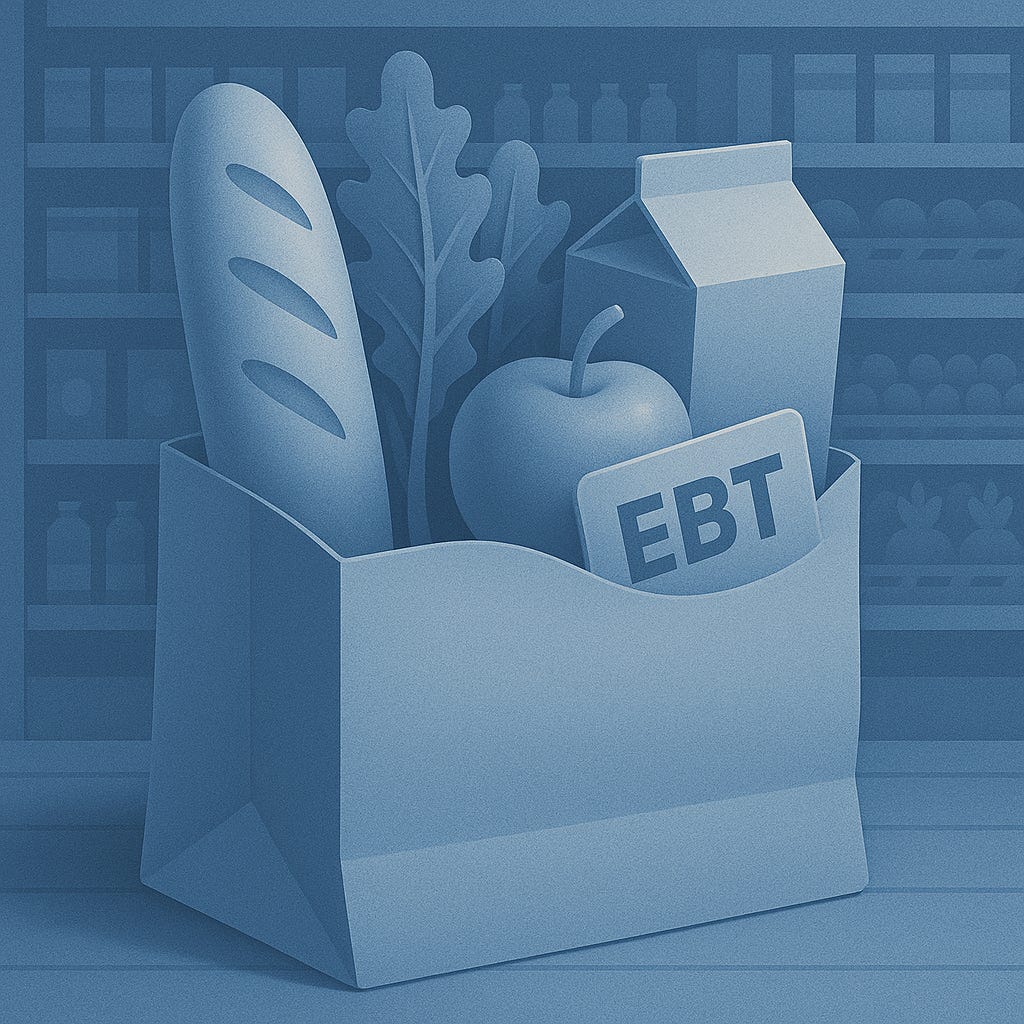Restoring Accountability to SNAP
Former CBO Director Keith Hall Shows How to Improve Program Integrity and Cut Excess Costs
Federal spending on the Supplemental Nutrition Assistance Program (SNAP) has skyrocketed since 2019, raising questions about cost drivers, oversight, and program integrity. In light of these challenges former CBO Director Keith Hall has outlined a set of reforms that would improve program accountability. Meanwhile, lawmakers in both the House and the Senate have introduced proposals to crack down on waste, fraud, and abuse in SNAP.
In FY2025, SNAP spending is set to be 73% higher than in FY2019. According to Matthew Dickerson at the Economic Policy Innovation Center (EPIC), these are the drivers of the increase:
President Biden unilaterally increased food stamp allotments by “evaluating” the Thrifty Food Plan used to calculate benefit levels.
The 21% above-inflation increase to the Thrifty Food Plan will cost taxpayers about $300 billion over the next decade.
The SNAP program is also experiencing unacceptably high levels of improper payments — most of those overpayments — despite large increases in program integrity spending.
As of 2023, annual SNAP overpayments are estimated at 11.7% of the program. That’s up from 6.3% in 2017. However, according to Hall this number could be 38% higher given the non-counting of erroneous payments below $57.
A growing body of evidence suggests that current anti-fraud strategies are falling short. Maybe more disturbing is the fact that states don’t have any incentives to try to prevent fraud or implement GAO recommendations to improve the program integrity.
The following recommendations reflect a set of reforms proposed by Hall. These ideas are designed to improve accountability, modernize oversight, and reduce vulnerabilities across the SNAP system.
These reforms include the following:
Establishing a dedicated office of program integrity within USDA’s Food and Nutrition Service to coordinate oversight, monitor state performance, and evaluate anti-fraud efforts.
Requiring disclosure of all payment errors — regardless of size (right now that there is $57 threshold) — to ensure the full extent of improper payments is measured and addressed.
Allowing states to retain a larger share of recovered fraud funds to better incentivize enforcement.
Authorizing states to remove retailers that commit fraud or contribute to payment errors and increasing USDA funding for retailer compliance and trafficking prevention.
Expanding the National Accuracy Clearinghouse across all 50 states to help prevent duplicate enrollment and requiring recipients to report out-of-state moves in a timely manner.
Mandating the use of chip-enabled EBT cards (as used in California and Oklahoma) to combat skimming and other forms of electronic benefit theft; retailers would also be required to accept chip cards.
Tightening broad-based categorical eligibility by reinstating asset tests and requiring more than token TANF-funded benefits to automatically qualify for SNAP. A 2020 USDA rule aimed at curbing this loophole was finalized but never implemented.
Strengthening USDA’s capacity to estimate the return on investment (ROI) of integrity activities, enabling better targeting of resources and more informed program adjustments.
Reconsidering the federal-state cost split for SNAP benefits, particularly in states with persistently high error rates. Creating some financial accountability at the state level could drive reforms.
While many of these proposals have been discussed before, few have been implemented. Persistently high overpayment rates and the scale of current losses make the case for reform more urgent than ever.
The good news is that both the House and the Senate have recently taken up reforms to SNAP. The House’s proposed changes are in H.R. 1 of the One Big Beautiful Bill Act. The Senate has also advanced its own set of proposed reforms.
Dickerson has a good summary of what the Senate and House have proposed. Below is a side-by-side comparison of the House and Senate plans, along with recommendations from Hall. Notably, some of Hall’s suggested reforms cannot be enacted through the reconciliation process, which may explain why neither chamber included them.
The reconciliation process presents an opportunity to adopt evidence-based reforms that address longstanding weaknesses in SNAP administration and restore accountability to a program in urgent need of it.


